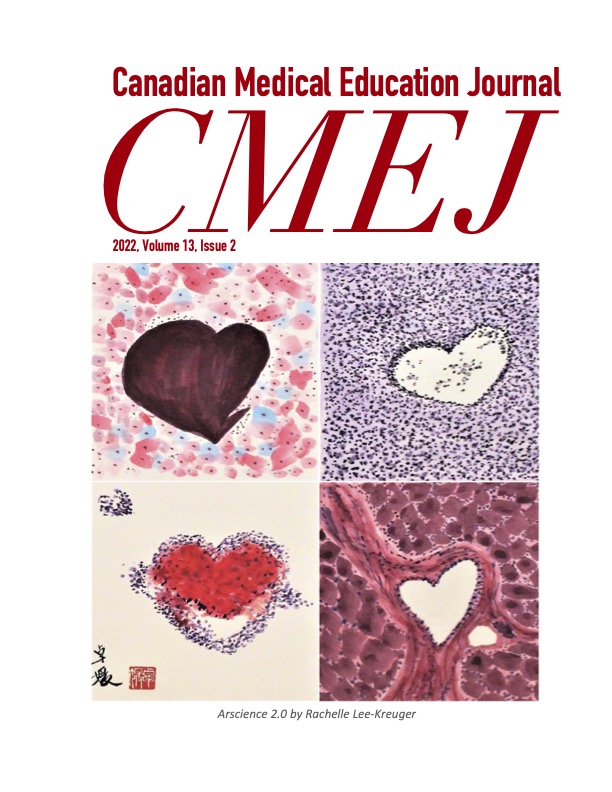The effects of COVID-19 on Canadian surgical residents’ education and wellness
DOI:
https://doi.org/10.36834/cmej.72160Abstract
Background: The COVID-19 pandemic has challenged health care systems. We sought to comprehend the impact of the COVID-19 pandemic on surgical residents’ education and mental well-being across Canada.
Methods: An online 51-question survey was distributed to surgical residents across all 17 Canadian post- graduate surgical residency programs. The questionnaire contained questions concerning demographic factors, perceived effects of COVID-19 pandemic on surgical training and residents’ mental health (categorically demonstrating whether it improved, stayed the same, or worsened). Health habits were measured as continuous variables and compared before and during the pandemic. Additionally, participants reported the performance of wellness offices’ response to their needs during this crisis.
Results: A total of 122 out of 650 (19%) residents from all surgical specialities anonymously completed the survey. The majority (68%) reported a worsening in their surgical training. 94% of participants favored online teaching as a complementary method to in-person teaching. As to health habits, 38% reported a rise in their alcohol consumption and time spent seated. Only a minority (25%) felt happier and 41% reported experiencing more anxiety in comparison to surgical training pre-COVID-19. Merely 14% reported benefitting from wellness programs.
Conclusion: The COVID-19 pandemic had a negative effect on the perceived quality of surgical training, education, and resident mental health. There is an urgent need to reconsider the implemented measures in medical education and urge us to develop better agendas to face the current or future waves.
Downloads
Published
Issue
Section
License
Copyright (c) 2019 Peter Alam, Ali Salimi, Hassan El Hawary, Krystelle Sioufi, Constantine Papanastasiou, Stephanie Thibaudeau

This work is licensed under a Creative Commons Attribution-NonCommercial-NoDerivatives 4.0 International License.
Submission of an original manuscript to the Canadian Medical Education Journal will be taken to mean that it represents original work not previously published, that it is not being considered elsewhere for publication. If accepted for publication, it will be published online and it will not be published elsewhere in the same form, for commercial purposes, in any language, without the consent of the publisher.
Authors who publish in the Canadian Medical Education Journal agree to release their articles under the Creative Commons Attribution-Noncommercial-No Derivative Works 4.0 Canada Licence. This licence allows anyone to copy and distribute the article for non-commercial purposes provided that appropriate attribution is given. For details of the rights an author grants users of their work, please see the licence summary and the full licence.











